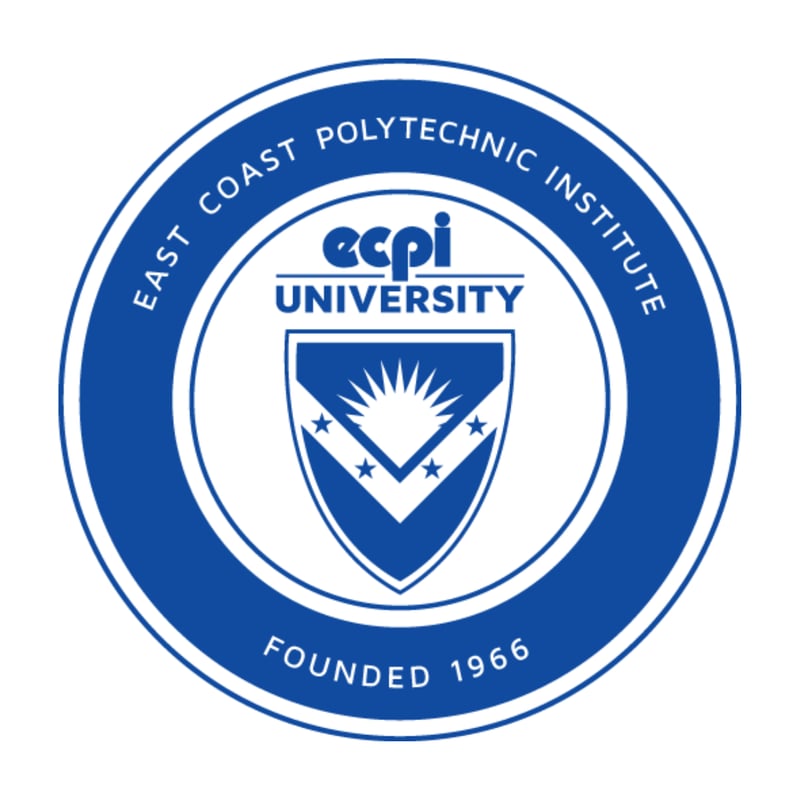
Financial aid (may be available)

No cost info

Financial aid (may be available)

Financial aid (may be available)

Financial aid (may be available)

Financial aid (may be available)

Financial aid (may be available)

Financial aid (may be available)

No cost info

Financial aid (may be available)

No cost info

Financial aid (may be available)

Financial aid (may be available)
Learn about the components of supply chains including supply chain networks, supply chain facilities, transportation, and inventory management as well as how emerging technologies affect them with our Supply Chain Fundamentals Certificate. These courses are perfect for learners seeking to enter the supply chain profession, as well as those who are seeking to enter supervisory roles or enter a new domain within the supply chain.
No cost info
This certificate program provides a foundation in supply chain and logistics management from both a U.S. as well as global perspective, preparing participants for professional careers with manufacturers and distributors, transportation carriers, and logistics service providers.
No cost info
American Military University (AMU) offers a logistics management certificate at the graduate level. It provides in-depth study of logistics and supply chain management with consideration of global impacts.
AMU’s online logistics certificate emphasizes transportation factors related to logistics, especially the maritime industry. The curriculum covers topics such as:
Transportation policy and planning
Transportation management and economics
Port and terminal operations
This program is an appropriate choice for those who wish to increase their knowledge of logistics and supply chain management without committing to a full degree program.
No cost info
No cost info
The online Logistics and Supply Chain Management Certificate from CCU will help you gain a deeper understanding of the processes and fundamentals within supply chain and inventory management, including purchasing and inbound logistics; material handling in distribution centers; warehousing and warehouse management; financial and inventory controls; transportation and distribution; and reverse and global logistics.
No cost info

Financial aid (may be available)

Financial aid (may be available)

$2,730 total

No cost info
No cost info
Logistics is a field that plays a vital role in the global economy. It involves the management and coordination of the flow of goods and services from the point of origin to the point of consumption. With the rise of e-commerce and globalization, the demand for logistics professionals has increased significantly. If you are interested in pursuing a career in logistics, taking classes in this field can be a great way to gain the necessary skills and knowledge. In this blog post, we will explore logistics classes near you in Greenville and provide some insights into what to expect from these classes.

Before diving into the details of logistics classes, it is important to understand what logistics is all about. Logistics refers to the process of planning, implementing, and controlling the efficient and effective flow of goods, services, and information from the point of origin to the point of consumption. It involves various activities such as transportation, warehousing, inventory management, and supply chain management. A career in logistics can be rewarding and offers a wide range of job opportunities in industries such as manufacturing, retail, transportation, and distribution.
To pursue a career in logistics, you typically need a high school diploma or equivalent. However, some employers may prefer candidates with a bachelor's degree in logistics, supply chain management, or a related field. Taking logistics classes can help you gain the necessary knowledge and skills to excel in this field. These classes are designed to provide you with a solid foundation in logistics principles and practices.
When looking for logistics classes in Greenville, there are a few key factors to consider:
Accreditation: Make sure the class is offered by an accredited institution or training provider. This ensures that the class meets certain quality standards and that the certification you receive will be recognized by employers.
Curriculum: Review the class curriculum to ensure that it covers all the essential topics in logistics, such as transportation management, inventory control, and supply chain management. Look for classes that offer hands-on training and real-world case studies to enhance your learning experience.
Instructor Qualifications: Check the qualifications and experience of the instructors who will be teaching the class. They should have industry experience and expertise in logistics.
Class Format: Consider the class format that suits your learning style and schedule. Some classes are offered in-person, while others may be available online or in a hybrid format. Choose a format that works best for you.
Logistics classes typically cover a wide range of topics related to the field. Here are some of the things you can expect from a logistics class:
Introduction to Logistics: You will learn about the basic principles and concepts of logistics, including its importance in the global economy.
Transportation Management: This topic covers the various modes of transportation used in logistics, such as trucks, ships, planes, and trains. You will learn how to plan and optimize transportation routes to ensure timely delivery of goods.
Inventory Control: This topic focuses on the management of inventory, including forecasting demand, setting reorder points, and implementing inventory control systems.
Supply Chain Management: You will learn about the coordination and integration of various activities in the supply chain, such as procurement, production, and distribution.
Warehouse Management: This topic covers the efficient management of warehouses, including layout design, storage systems, and inventory tracking.
After completing a logistics class, you may have the opportunity to obtain a certification in logistics. The certification process typically involves the following steps:
Completion of Class: You must successfully complete the logistics class, including all assignments and assessments.
Application: You will need to submit an application for certification to the relevant certifying body. This may require providing proof of completion of the class and paying a certification fee.
Examination: Some certifications may require you to pass an examination to demonstrate your knowledge and competency in logistics.
Certification Award: Upon successfully completing the certification process, you will receive a certificate recognizing your achievement. This certificate can enhance your resume and demonstrate your commitment to professional development in logistics.
Once you have completed a logistics class and obtained a certification, you can start exploring job opportunities in the field. Here are some common job titles in logistics:
Once you have established a career in logistics, you may want to consider taking additional classes to enhance your skills and advance your career. Here are some other classes you can consider:
Supply Chain Management: This class focuses on the strategic management of the entire supply chain, including supplier selection, demand forecasting, and risk management.
Lean Six Sigma: This class combines the principles of lean manufacturing and Six Sigma to improve operational efficiency and reduce waste in logistics processes.
Project Management: This class provides you with the skills and knowledge to effectively manage logistics projects, such as warehouse relocations or system implementations.
International Logistics: This class covers the unique challenges and opportunities in managing logistics operations in a global context, including customs regulations, international trade, and cross-border transportation.
Taking these additional classes can help you broaden your knowledge and make you a more valuable asset in the logistics industry.
If you are interested in pursuing a career in logistics, taking classes in this field can provide you with the necessary skills and knowledge to succeed. By considering factors such as accreditation, curriculum, and instructor qualifications, you can find a logistics class in Greenville that meets your needs. After completing a logistics class and obtaining a certification, you can explore job opportunities in various roles such as logistics coordinator, supply chain analyst, or warehouse manager. Additionally, taking other classes in subjects such as supply chain management or lean six sigma can further enhance your skills and advance your career in the field. For more information on logistics classes and other vocational training programs, visit Dreambound.
Navigate the certification journey in this field with Dreambound's detailed guides, each crafted for various cities. For a deeper understanding of the process in other states, our additional guides may be able to help.
Pondering a shift in your career path or exploring different professional avenues? Dreambound has created detailed guides to support you in making informed decisions:
Dreambound's platform allows prospective students to find the right educational program for them through searching, filtering, and connecting with our extensive selection of career & technical education partners.
Dreambound has over 70 programs across healthcare, technology, business, and industrial trades. This includes programs such as Medical Billing, Cybersecurity, and welding.
Some of our schools offer financial aid for those who qualify. Many others offer payment plans, where you can pay the cost of class over time.
Yes, Dreambound offers many online programs. On Dreambound's search, you can filter by online, in-person, and hybrid (part online, part in-person).
Dreambound is completely free for you to use! We are supported by schools and organizations who pay to advertise on our website, so we can offer all of our career resources for free.